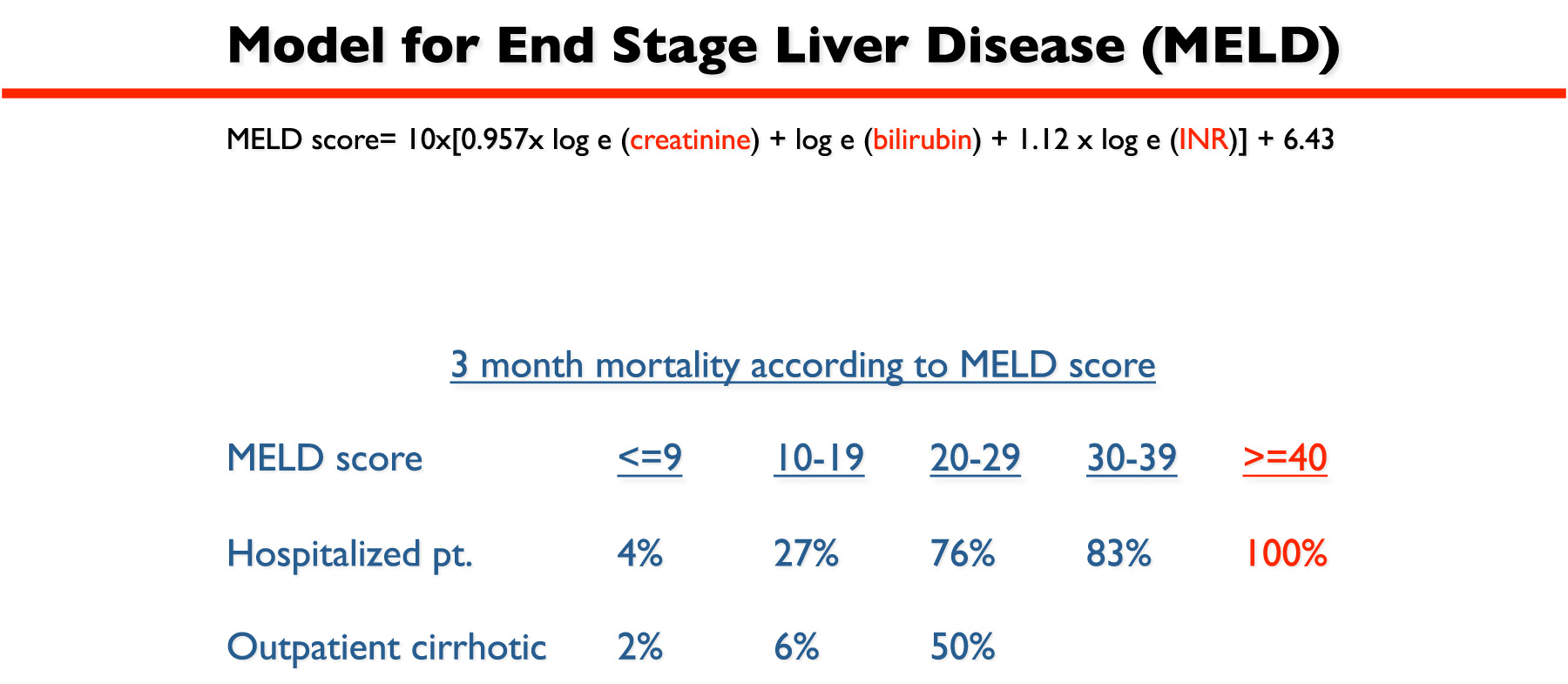
In addition, for persons with more advanced cirrhosis, ongoing illicit drug use may impact consideration for liver transplantation. A person with chronic HCV and cirrhosis who continues to use injection drugs, remains at risk for acquiring other bloodborne viruses, such as HIV and hepatitis B virus (HBV), and they can become reinfected with HCV after obtaining a sustained virologic response with treatment.
#Meld na score interpretation how to#
A clinician’s Pocket Guide for Alcohol Screening and Brief Intervention is available from the National Institute on Alcohol Abuse and Alcoholism (NIAAA) to inform clinicians how to take an appropriate alcohol history. Alcohol Use: Detailed quantitative information should be obtained from the patient regarding current and past alcohol use.Once an individual is diagnosed with cirrhosis, there are key elements of the history, physical examination, and laboratory studies that need to be addressed and monitored. Some experts have proposed a 4-stage cirrhosis classification system that risk stratifies individuals according to the presence of ascites, esophageal varices, and variceal bleeding to differentiate and stage compensated and decompensated disease ( Figure 3). In general, any person with decompensated cirrhosis should receive evaluation and medical care by a hepatologist or liver diseases specialist. In addition, the presence of decompensated cirrhosis can have major implications regarding management and prevention of cirrhosis-related complications, as well as the potential need for a referral for liver transplantation evaluation. Prognosis and survival are markedly better in persons with compensated cirrhosis than in those with decompensated cirrhosis ( Figure 1) and ( Figure 2). Distinguishing Compensated versus Decompensated Cirrhosis In contrast, persons with decompensated cirrhosis often have symptomatic complications related to cirrhosis, including those related to hepatic insufficiency (jaundice or hepatic encephalopathy), and those related to portal hypertension (ascites or variceal hemorrhage). Persons with compensated cirrhosis often do not have signs or symptoms related to their cirrhosis, although they may have evidence of portal hypertension, such as esophageal or gastric varices. Once it has been established that an individual has cirrhosis, it becomes very important to determine whether they have compensated or decompensated cirrhosis. Defining Compensated and Decompensated Cirrhosis

As individuals develop more extensive hepatic fibrosis, physiologic complications can develop, such as increased pressure within the portal system, disruption in bilirubin metabolism, and reduced production of coagulation factor proteins. Advanced fibrosis and cirrhosis-at their early stages-are not usually clinically detectable or symptomatic. In an estimated 20 to 30% of persons with hepatitis C virus (HCV) infection, chronic viremia results in inflammation, followed by fibrosis and cirrhosis.


 0 kommentar(er)
0 kommentar(er)
